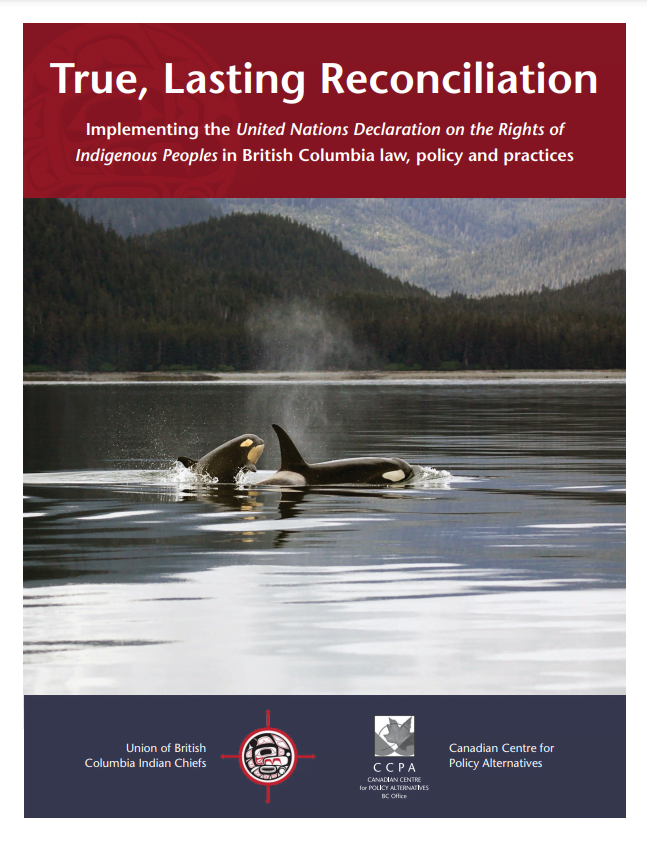4 search results
Action plan to implement the UN Declaration in BC
Recommendation 1: Establish a preliminary legislative foundation as soon as possible that brings transparency, coherence and a measure of accountability to the process, as part of a broader long-term approach to legislative change.Foundational legislation developed in full co-operation with Indigenous peoples will provide a transparent, coherent and binding path to implementation.
Bill C-262 is a logical starting place for this legislation, as it provides a confirmation of legal application in BC; a legislated requirement for an orderly, clear and transparent process of implementation; and a recognition of the need for oversight and accountability frameworks.
Establishment of legislation should be reflective of a new approach to litigation regarding Indigenous Rights: collaboration, not conflict.
-
Category and theme:
Groups affected:
Action plan to implement the UN Declaration in BC
Recommendation 2: Support a central focus on Indigenous peoples choosing how they will organize and govern themselves consistent with the right to self-determination.Indigenous self-determination is foundational to the UN Declaration.
Historically, self-government agreements have been paternalistic and subject to discriminatory colonial policies.
Advancing Indigenous self-government will require the BC government to invest in the work being implemented by Nations.
The right to self-determination necessarily includes the recognition and revitalization of Indigenous laws and legal systems.
The BC government should support this work apart from achieving agreements on other outcomes (i.e., resources), and without demanding a prescribed Crown role in the rebuilding effort.
-
Category and theme:
Groups affected:
Action plan to implement the UN Declaration in BC
Recommendation 3: Take tangible steps to turn words into action through a diverse range of implementation initiatives that reflect the minimum standards in the UN Declaration.There is no “one size fits all” approach to implementation; it will differ based on the context and the community.
As such, it would be beneficial for Indigenous Nations and Crown governments to advance new models of consent-based agreements in a number of different areas, such as aquaculture and community-industry agreements.
A legislative amendment could be made to allow decision-makers to enter into agreements and arrangements with Indigenous Nations, allowing legislative space for self-government.
-
Category and theme:
Groups affected:
Action plan to implement the UN Declaration in BC
Recommendation 4: Develop tools that entrench an understanding, respect and appreciation of the UN Declaration in society at large.For implementation to be successful, the general public must be able to participate in discourse about the UN Declaration at the same level as other pieces of foundational legislation such as the Canadian Charter of Rights and Freedoms (Constitution Act, 1982).
To do so, human rights education needs to be implemented and tools need to be developed (including school-based curricula) to properly educate the Canadian public on the UN Declaration.
-
Category and theme:
Audience:
Groups affected:
